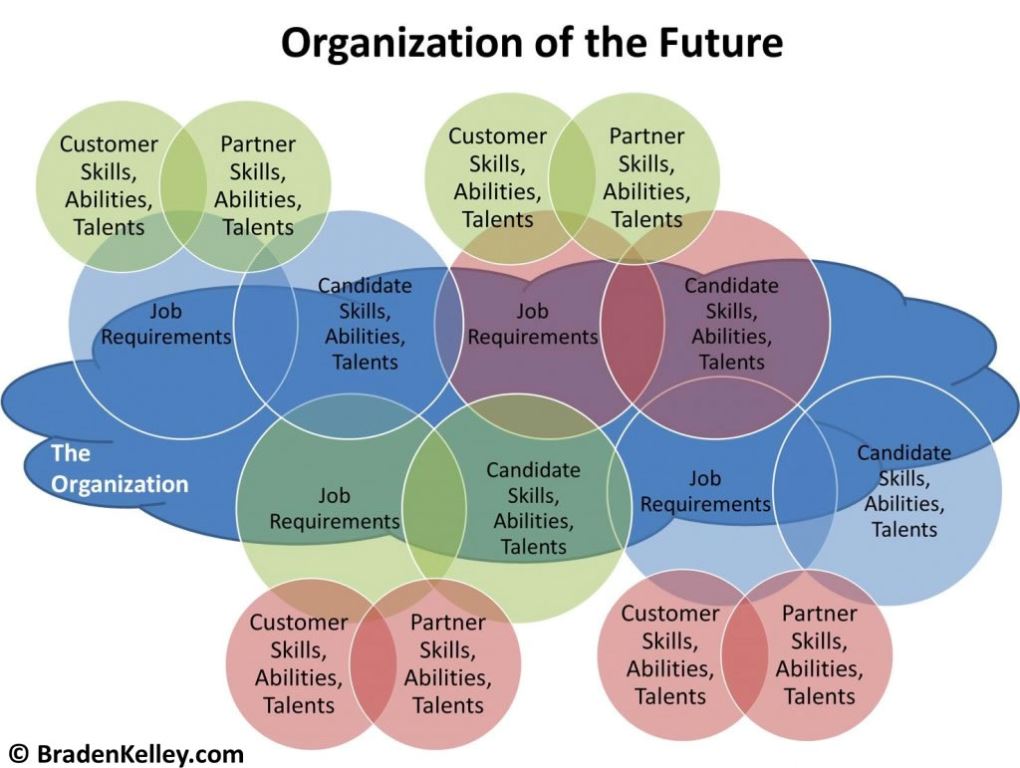A lot has changed in the past 20-30 years when it comes to the technology that we use to communicate and build relationships in business. Yet, many business leaders have failed to keep up with these innovations and adapt their own leadership styles and communication skills accordingly.
If you’ve been active in business in the decades of the late twentieth century and the early 21st century, then you know exactly what I’m talking about. Postal mail has been largely replaced by electronic mail. Telephones that sit on our desks and plug into the wall have been replaced by mobile phones that go wherever we go, never leaving our sides. Even the conversations we used to have on the phone, in meetings, and at conferences now take place by text message, by email and, crucially, on social networking platforms such as LinkedIn, Twitter and Facebook.
There are many reasons why leaders’ communication styles and habits have not evolved with technology. Business leaders are typically busy people with arguably less available time than many others to learn new technologies. Compounding this reality is the fact that leaders often work with executive assistants to whom technological tasks are delegated – a habit that may have made sense in the early years of workplace computing, but one that makes far less sense now.
The reality is that the communication styles and habits of business leaders evolve slowly over time and are hard to change precisely because they are human behaviours. It’s hard to change our most ingrained habits and it doesn’t get more fundamental than our interpersonal communication habits.
And yet, the need for business leaders to adapt their communication habits to the technological innovations of the 21st century is so critically important it’s hard to overstate it. More than ever, the success of a leader is tied to how that leader performs as a communicator.
Now, before you dismiss this article as not applying to you, let me clarify who qualifies as a ‘business leader’. Perhaps you’re a CEO or other C-level executive in a business or public-serving organization. Perhaps you sit on a board of directors for a business or charitable organization. Maybe you’re a business owner, investor or serial entrepreneur. Or you’re not a senior leader today, but you aspire to leadership roles in the future. Everything you’re about to read in this article applies to YOU.
There are at least three reasons why business leaders need to adapt their communication skills to the 21st century.
1. Business leaders need to be visible and authentic
The technological trends mentioned above are not just changing interpersonal communications, but they are changing the very concept of leadership in the 21st century. No longer limited to overseeing the sales, operations and communications of their organizations, business leaders are increasingly expected to be visible representatives and actually BE the chief communicators for their companies.
In times of crisis, senior leaders are called upon to answer to the public or the business community at large and speak on behalf of their company. Employees, along with clients and business partners, look to company leaders to inspire and set the tone for the company they work for and/or do business with.
In the old days, leaders that were required to do media interviews received media training – essentially, how to deliver the key talking points. Today’s media is much more fragmented; traditional media outlets still exist, but are in many situations being eclipsed by online social networks. And there’s another difference: social networks don’t come with a built-in audience that way a television or newspaper reporter does. You start with zero followers on Twitter, no connections on LinkedIn and no friends in Facebook – you have to build your own network before you can leverage it.
Communication technologies are far more accessible than ever before and this creates new expectations of and demands on leaders. One expectation is that business leaders will speak authentically in their own voice and not always through the apparatus of corporate communications handlers, filters and spokespeople. And since social networking profiles are personal and accessible to everyone, there is an expectation that leaders will use these platforms directly, personally.
Fundamentally, social networking sites like Facebook, LinkedIn and Twitter (along with the myriad of other sites such as Instagram, Pinterest, SnapChat, etc.) are platforms for interpersonal communication. They are not first and foremost marketing or sales channels. Social networks facilitate people talking with one and other, for meeting new people, deepening relationships and sharing information, insights and opinion.
So, if social networking platforms exist to primarily facilitate communication between people and the role of the business leader is increasingly to be a lead communicator, then effective business leaders need to develop the personal skills and organizational capacity to capably represent themselves and their companies in these environments.
2. Develop a personal brand because this isn’t your last job
Not only is it in your best interest as a leader of your company or organization to tune up your personal brand and social networking savvy, it is in your personal interest to do so. Unless you consider this to be your last job.
If you are building a career, this is not likely your last leadership position. And when that next position comes knocking, it may be your personal brand that wins it or loses it for you.

Whether you think of yourself in this way or not, you are a personal brand. You have a set of values that you strive to embody through your work and leadership and it is precisely this personal brand that figures into people’s thinking when they are evaluating your performance in your current role or deciding if you’re a good fit for a new role. Ask any recruiter about the role that a candidate’s social media presence plays in any hiring process. It can be a significant positive or negative factor.
Online social networks and digital mobile technology have empowered personal brands with tools previously only available to large corporate brands. Today, you don’t need to be a publishing magnate to own your own website and publish your views on a blog. You can build your own personal email list and push content out to your personal subscribers whenever you want. You can share ideas in social networks and build a following of people that want to read what you share on Twitter, LinkedIn, Facebook and in other networks. None of these tools are prohibitively expensive, but they require that you have a personal brand strategy and that you invest the time.
I’m not suggesting that every business leader needs to be active in every online social network. But I am suggesting that ignoring social networks or, potentially worse, engaging without a well-thought-out strategy and plan is not in your long-term professional or personal interest.
3. Online social networks are made up of people that can solve your business problems
In the old days, businesses were more insular. Social networks were developed within organizations rather than across them. The corporate email systems of the 1980s served inter-organizational communications and in the 1990s companies developed ‘intranets’ to leverage web technology for internal communications.
Unlike earlier eras, today’s online social networks make it easier than ever before to connect with people outside of our companies, industries or trained professions.
Admittedly, this can be concerning for people whose business experience is rooted in the 20th century. Fears abound. What if someone poaches our best people? What if our competitors see what we’re saying? Just being on LinkedIn and connecting with people means they can see who else is in your network (although this is a default account setting on LinkedIn, you can make your network private if you want).
I understand and sympathize with these concerns, but this is the new reality in business. Online social networking makes our networks more transparent. Sharing actively and publically online means that people can see what we share. This can make us feel vulnerable – but it also has benefits.

Twenty-first century business leaders recognize that technology is evolving and the world is moving faster – often faster than they can adapt. You will not always find the best solutions to all of your critical business problems within your organizations. External specialists, subject matter experts and other businesses exist outside your company and can play vital roles as your strategic partners.
Online social networks serve precisely this purpose. They have the effect of making organizations more porous by making it easy for people in different organizations to discover each other and share information and ideas. This can help your company enormously if you think about it differently. Start by flipping your concern about competitors on its head: paying attention to what your competitors are doing online can help you hone your company’s market strategy. Imitate what your competitors are doing well and differentiate from them where they’re failing.
What are the 21st century social networking skills you need to develop?
If you’ve gotten this far, you may be thinking this is something you need to be paying more attention to. So what social networking skills should you focus on?
Here are seven general skill areas you need to be developing:
1. Write your ideas down
Writing has always been an important thinking skill because it helps you clarify your thoughts. Even if you just make notes summarizing your reasoning or arguments, it helps clarify what you say and do. Get in the habit of writing your thoughts down regularly as this can come in very handy as a foundation for meaningful engagement in social networks.
2. Develop strategies for creating content
Once you’re in the habit of capturing your thoughts in writing, you can use this to create content or leverage the services of external content creators to write articles, draft presentations and create visuals for you. Creating some original content is key for developing personal brand and cultivating thought leadership.
3. Read and consume information about your industry
Most business leaders have some method for keeping abreast of developments in their industry, as well as general business news and information. Getting in the habit of filtering good news sources from bad ones, good articles from bad, is a critical skill in the age of social media because it both keeps you informed and helps you cultivate a following of people that looks to you as an authority.
4. Learn how to share content frequently and efficiently
If you are consuming information and filtering the good from the bad, you are one step away from turning that knowledge you’ve acquired into a personal brand asset. Learn how to use a social media management tools to share what you like frequently and efficiently in order to grow your visibility and authority in social networks.
5. Pay attention to others
There are always individuals in your network that are more important to you at certain times than others (eg., key clients, partners, prospects, etc.). The best way to get anyone’s attention in social networks is to pay attention to them. Observe what they share and like or comment on relevant content and share the best with your network. Pay attention to people and they will reciprocate.
6. Extend your relationships in online social networks
We are meeting new people all the time in meetings, at conferences and at social functions and we exchange business cards in order to share contact information so we can stay in touch. Connecting with new business relationships on LinkedIn, for example, allows you to monitor what your new contact is sharing and maintain some interaction until you meet them in real life again. By extending relationships digitally in this way, we can get to know people better and nurture the trust in our business relationships.
7. Expanding our business relationships in online social networks
Some social networks (Twitter, in particular, comes to mind) are fertile networking environments in which we can discover new people we want to have in our network. Virtually every business person that is an active online social networker can tell stories about people they’ve met online first and then gotten to know better offline and welcomed into their network. If you’re a true networker, learning how to make friends with people you meet online is a critically important skill in the 21st century.
Actions you can take now to improve your social networking
Want to do one thing (or maybe two or three) to practically advance your personal brand building and social networking?
Here’s a bunch of immediate actions to choose from:
1. Tune up your LinkedIn profile:
- Ensure you have a friendly, approachable headshot.
- Make sure your profile is accurate and up to date.
- Publish a few articles on LinkedIn that demonstrate your subject matter expertise.
- Spend a few minutes each day looking at what your connections share on LinkedIn and comment appropriately.
- Make a habit of connecting on LinkedIn with anyone you meet that you want to stay in touch with.
2. If you’re not already active on Twitter, get active:
- Follow personal influencers and pay attention to what they share.
- Tune into Twitter hashtags for conferences or special events that are happening in your industry.
3. Start writing:
- Schedule time to write down your thoughts, preferably daily.
- Make notes of your thoughts on content you read and like/dislike.
- Write articles. You don’t need to wait for anything. Just write.
4. Get help for yourself:
- a. Hire a personal brand consultant or coach to help you implement your strategy.
- b. Leverage your administrative support team to help you find great content to share.
- c. Become a student of social networks and read as much as you can online to build up your skills.
5. Help your team:
- Provide your team with support to improve their online social networking skills.
- Hold team members accountable to improve their digital literacy.
- Lead by example and show your team how business leaders should lead in the 21st century.
(38)








